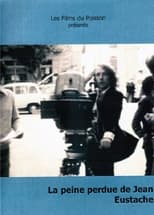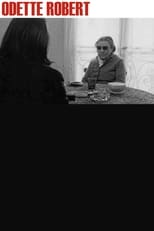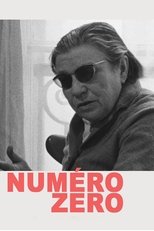

Odette Robert
Movies for Odette Robert...

Title: Jean Eustache's Wasted Breath
Character: Self (archival footage)
Released: May 14, 1997
Type: Movie
Ángel Díaz’s documentary The Lost Sorrows of Jean Eustache, concentrates on Eustache as cinematic thinker and archivist of his own life. Actors read texts written by Eustache, including the following reflection: “The role of the author in cinema should be one of non-intervention.” This sentence reminds us that he belongs to the greatest of film traditions (he cites Griffith, Renoir, Dreyer, and Lang as his models), the one that sees cinema as a matter of placing the camera in front of reality and capturing it ardently, precisely, and without tricks.


Title: Odette Robert
Character: Self
Released: January 1, 1971
Type: Movie
Eustache’s grandmother Odette Robert was a key figure in his life, serving as a substitute mother during much of his childhood (My Little Loves was dedicated to her). In 1971, he recorded an interview with her that went largely unseen until 2003—Eustache never screened the complete film publicly, although a radically truncated version was presented on television. In a string of long, stationary takes, the camera watches over Eustache’s shoulder while he pours countless glasses of whiskey and Odette tells the stories of her life. A number of her themes resonate with those of Eustache’s films: cruelty, male philandering, the Rosière festival of Pessac. Number Zero is a return to origins—of cinema and of the self—and an experiment in narration, both restrained and deeply personal.


Title: Numéro zéro
Character: Self
Released: January 1, 1971
Type: Movie
A family portrait in which the director profiles his grandmother, Odette Robert. Eustache includes in the film the conditions of its production — he is seated at the table with her, pours her some whiskey, speaks with the camera operator, manipulates the clapboard at the head and tail of the reels, and even takes a phone call. Robert, who was seventy-one, speaks rapidly and tells the story of her life, starting from her early childhood in villages in the Bordeaux region of France. A shorter version of the film ("Odette Robert") was edited in 1980 to be broadcast on television on TF1. The complete film only gained exposure in 2002, when it was salvaged by Boris Eustache, Thierry Lounas, João Bénard da Costa, Jean-Marie Straub, and Pedro Costa.
